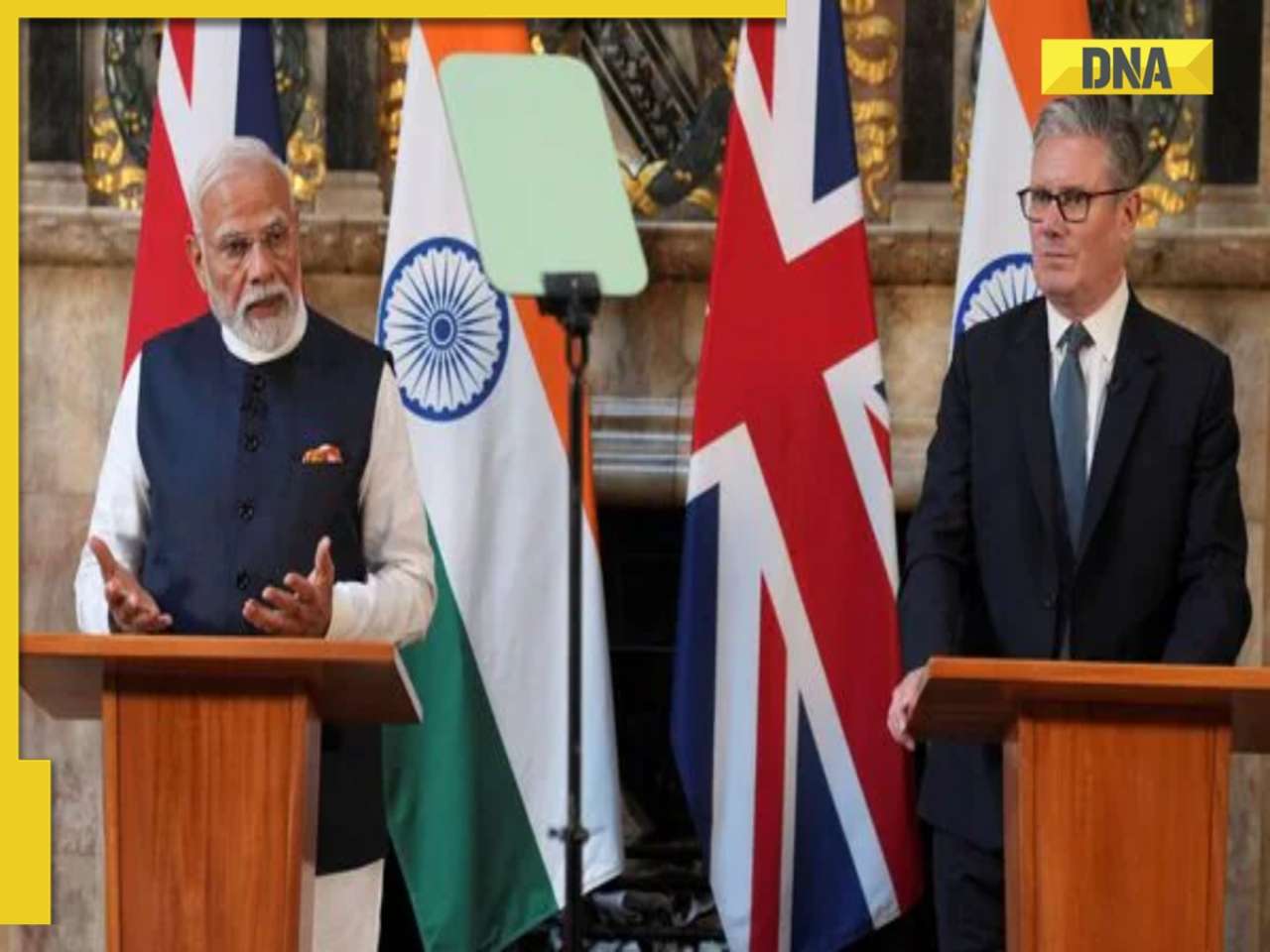In a surprising statement, Mukesh Ambani, chairman of one of India’s largest telecom company Reliance Jio, has called it his life’s ‘biggest risk.’ He cites its positive impact on the digital India and its transformation as risk worth taking.
In a surprising statement, Mukesh Ambani, chairman of one of India’s largest telecom company Reliance Jio, has called it his life’s ‘biggest risk.’
In a surprising statement, Mukesh Ambani, chairman of one of India’s largest telecom company Reliance Jio, has called it his life’s ‘biggest risk.’ But he also added that its impact on India's digital development was so big and positive that the risk was worth taken even if it had failed to make money. His statement came in an interview with McKinsey & Co on Wednesday, June 25. What he meant was that even if analysts' predictions of financial failure had come true, it would still have been worth it for the role it played in transforming India digitally. Mukesh Ambani launched Reliance Jio in 2016.
In an interview with McKinsey & Co, the richest Asian said Reliance Industries was investing its own billions of dollars in rolling out 4G mobile networks -- which some analysts thought might not work out financially as India was not ready for the most advanced digital technology.
What makes investment in Reliance Jio worth?
“But I told my board, 'In the worst case, we will not earn much return. That's okay because it's our own money. But then, as Reliance, this will be the best philanthropy that we will have ever done in India because we will have digitised India, and thereby completely transformed India',” he said.
Since its launch in 2016, Jio has revolutionised the Indian telecom market by providing free voice calls and extremely low-cost data, compelling competitors to cut prices and driving rapid digital adoption across the country. Before Jio’s arrival, mobile internet in India was relatively expensive and inaccessible to large sections of the population. Its entry led to a price war that significantly reduced the cost of data, making internet access affordable to millions of Indians, including those in rural and underserved areas.
The result was increased internet penetration -- India now has over 800 million internet users, making it one of the largest online markets globally. It hastened digital inclusion as affordable data has helped bridge the digital divide, bringing first-time internet users -- many from low-income households -- online and fuelling growth of digital services like e-commerce, fintech, edtech, and entertainment.
(With inputs from PTI)
Find your daily dose of All
Latest News including
Sports News,
Entertainment News,
Lifestyle News, explainers & more. Stay updated, Stay informed-
Follow DNA on WhatsApp. IND vs ENG: R Ashwin declares management's 'batting depth' theory flawed, makes explosive case for Kuldeep Yadav
IND vs ENG: R Ashwin declares management's 'batting depth' theory flawed, makes explosive case for Kuldeep Yadav Sukesh Chandrashekhar promises 2BHK flats worth Rs 1 crore to Jacqueline Fernandez fans in a lucky draw for...
Sukesh Chandrashekhar promises 2BHK flats worth Rs 1 crore to Jacqueline Fernandez fans in a lucky draw for... Israel makes it mandatory for military officers to study Islam and learn Arabic due to...
Israel makes it mandatory for military officers to study Islam and learn Arabic due to... Neeraj Chopra vs Arshad Nadeem showdown in Poland Diamond League uncertain as Pakistani javelin star....
Neeraj Chopra vs Arshad Nadeem showdown in Poland Diamond League uncertain as Pakistani javelin star.... This company bags Rs 2000 crore contract from Defence Ministry for...; not HAL, Mazagon Dock
This company bags Rs 2000 crore contract from Defence Ministry for...; not HAL, Mazagon Dock Other than heart attacks or BP : 7 hidden heart conditions triggered by oily foods
Other than heart attacks or BP : 7 hidden heart conditions triggered by oily foods 7 most captivating space images captured by NASA you need to see
7 most captivating space images captured by NASA you need to see AI-remagined famous Bollywood father-son duos will leave you in splits
AI-remagined famous Bollywood father-son duos will leave you in splits 7 superfoods that boost hair growth naturally
7 superfoods that boost hair growth naturally Confused between Forex and Credit cards for your international trip? Learn which saves more
Confused between Forex and Credit cards for your international trip? Learn which saves more Tata Harrier EV Review | Most Advanced Electric SUV from Tata?
Tata Harrier EV Review | Most Advanced Electric SUV from Tata? Vida VX2 Plus Electric Scooter Review: Range, Power & Real-World Ride Tested!
Vida VX2 Plus Electric Scooter Review: Range, Power & Real-World Ride Tested! MG M9 Electric Review | Luxury EV with Jet-Style Rear Seats! Pros & Cons
MG M9 Electric Review | Luxury EV with Jet-Style Rear Seats! Pros & Cons Iphone Fold: Apple’s iPhone Fold Could Solve Samsung’s Biggest Foldable Problem | Samsung Z Fold 7
Iphone Fold: Apple’s iPhone Fold Could Solve Samsung’s Biggest Foldable Problem | Samsung Z Fold 7 Trump News: Congress Seeks Answers On Trump's Alleged Mediation In Operation Sindoor
Trump News: Congress Seeks Answers On Trump's Alleged Mediation In Operation Sindoor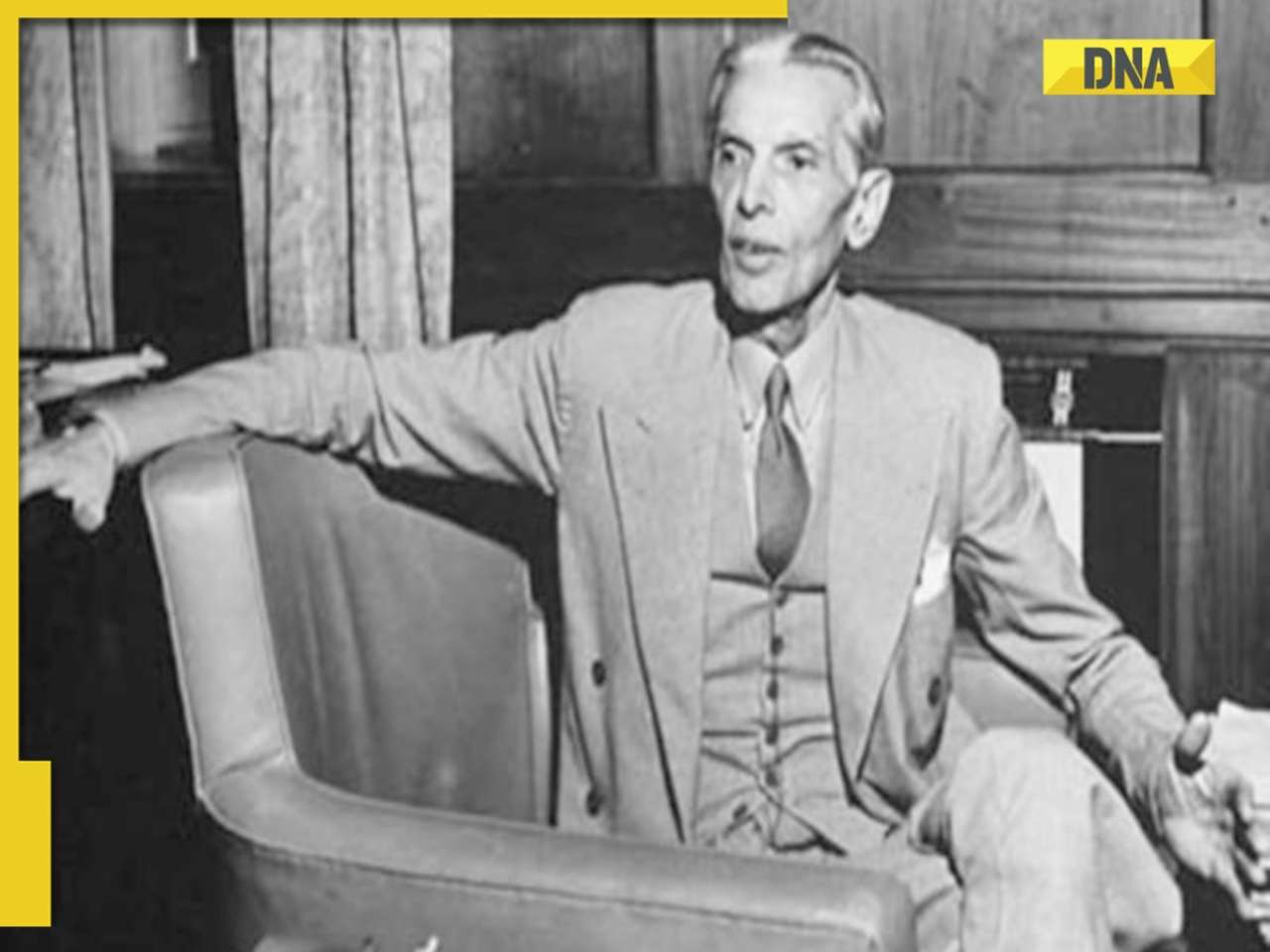 Jinnah wanted THIS Muslim man to be first Finance Minister of Pakistan, he refused, his son is on Forbes list of billionaires
Jinnah wanted THIS Muslim man to be first Finance Minister of Pakistan, he refused, his son is on Forbes list of billionaires After India-UK FTA, New Delhi to begin talks with THIS country, because...
After India-UK FTA, New Delhi to begin talks with THIS country, because...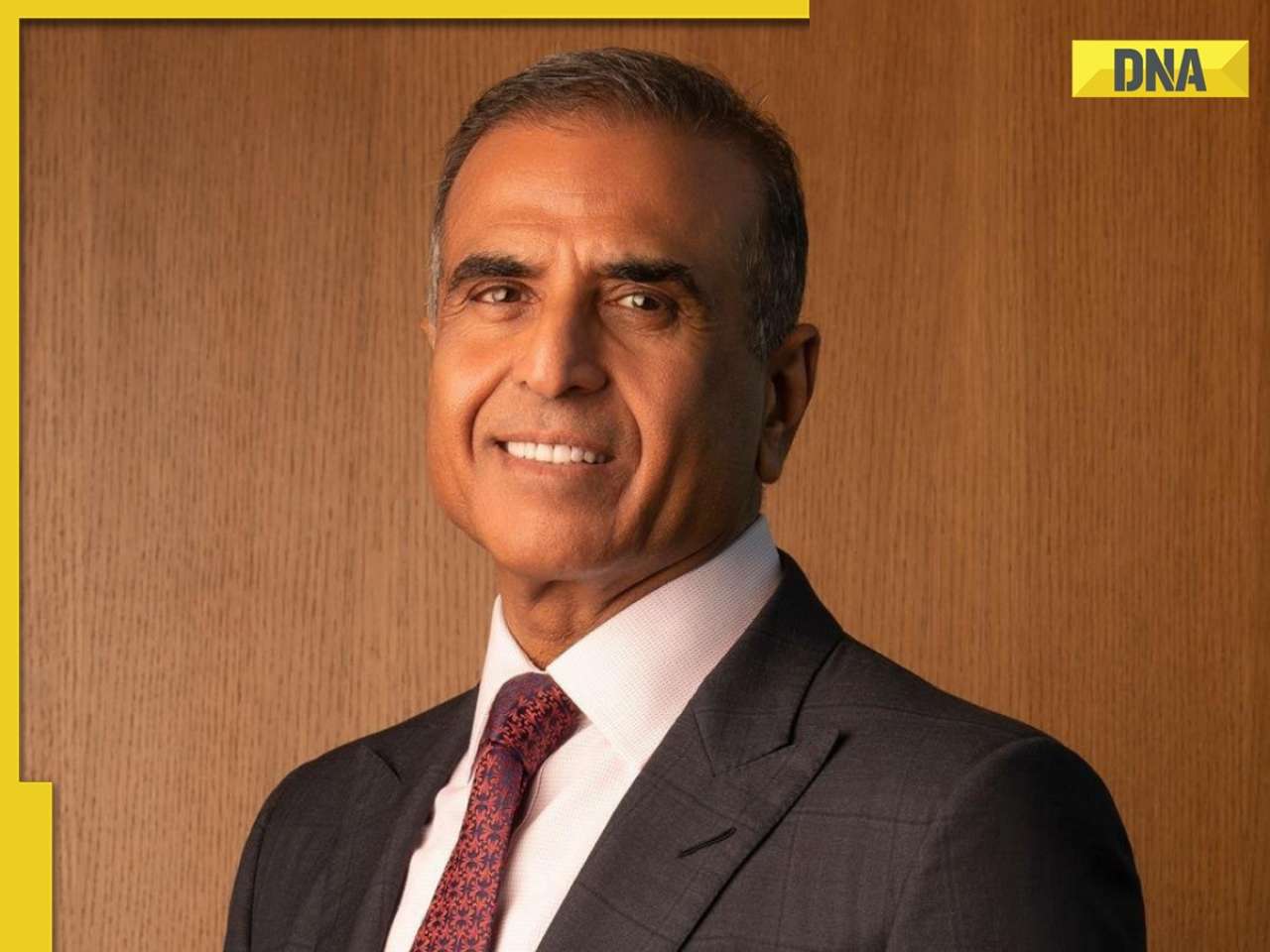 Indian billionaire Sunil Mittal earns Rs 13499163600 profit from this country, not India, UK; net worth reaches Rs...
Indian billionaire Sunil Mittal earns Rs 13499163600 profit from this country, not India, UK; net worth reaches Rs... UPI Alert! New UPI rules to come in effect from..., know how it will affect GPay, PhonePe, Paytm users
UPI Alert! New UPI rules to come in effect from..., know how it will affect GPay, PhonePe, Paytm users 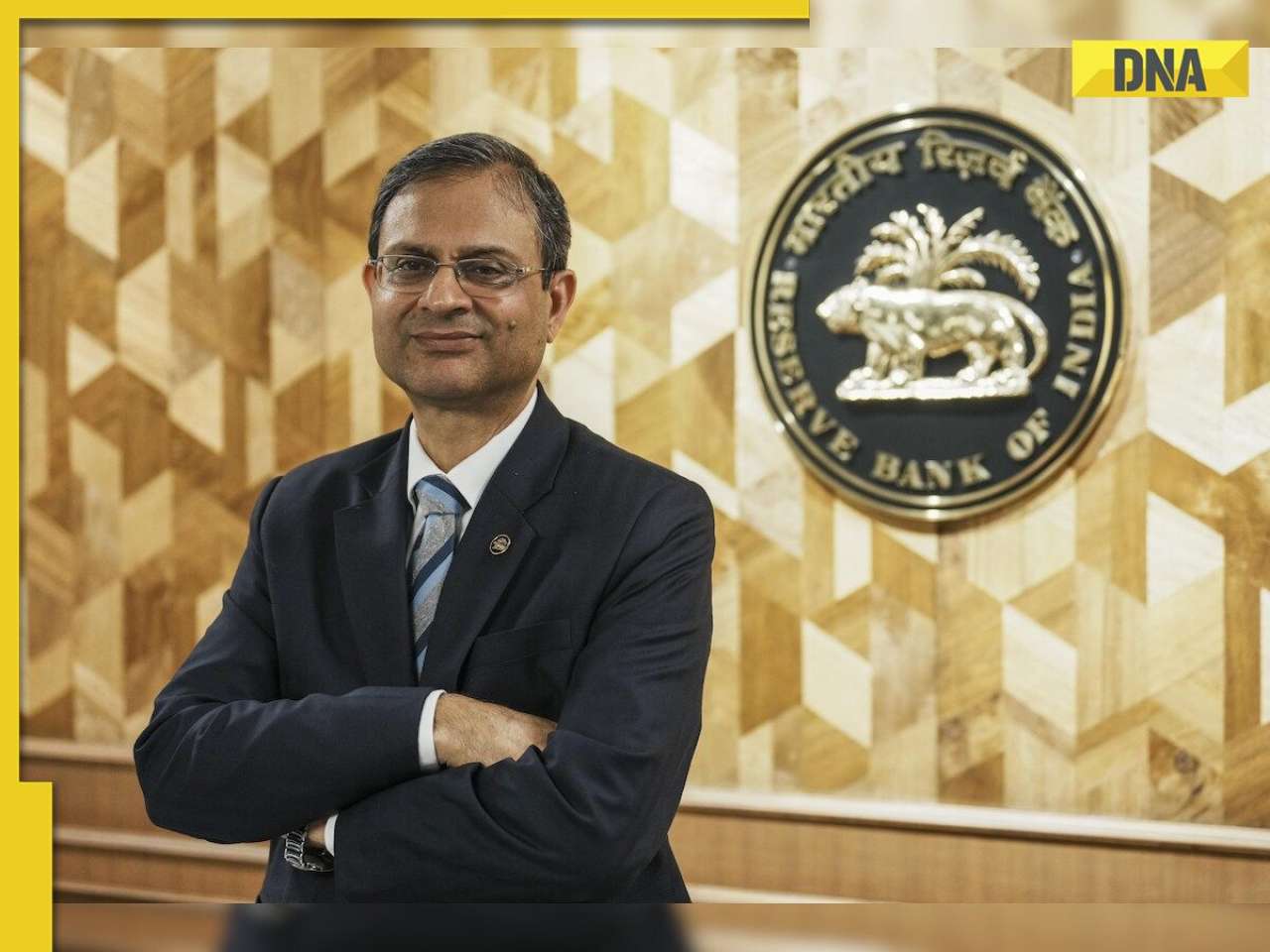 RBI Governor Sanjay Malhotra makes BIG statement on free UPI transactions, says 'some cost...'
RBI Governor Sanjay Malhotra makes BIG statement on free UPI transactions, says 'some cost...' Ashish Chanchlani looks dashing as he drops latest photos from Italy, fans say 'Tom Cruise fail hai aapke saamne'
Ashish Chanchlani looks dashing as he drops latest photos from Italy, fans say 'Tom Cruise fail hai aapke saamne' Are these five vintage car museums in India a must-visit for every automobile lover?
Are these five vintage car museums in India a must-visit for every automobile lover? Riddhima Kapoor Sahni looks dreamy in pastel gold embroidered ensemble as she walks for Suneet Varma at IWC 2025; SEE PICS
Riddhima Kapoor Sahni looks dreamy in pastel gold embroidered ensemble as she walks for Suneet Varma at IWC 2025; SEE PICS Malaika Arora grabs attention with her street style moment, dons oversized denims, white tank top, luxurious mini bag worth Rs…
Malaika Arora grabs attention with her street style moment, dons oversized denims, white tank top, luxurious mini bag worth Rs… Raksha Bandhan 2025: Bollywood's sweetest 'muh-bole' sibling bonds that celebrate rakhi beyond blood
Raksha Bandhan 2025: Bollywood's sweetest 'muh-bole' sibling bonds that celebrate rakhi beyond blood This company bags Rs 2000 crore contract from Defence Ministry for...; not HAL, Mazagon Dock
This company bags Rs 2000 crore contract from Defence Ministry for...; not HAL, Mazagon Dock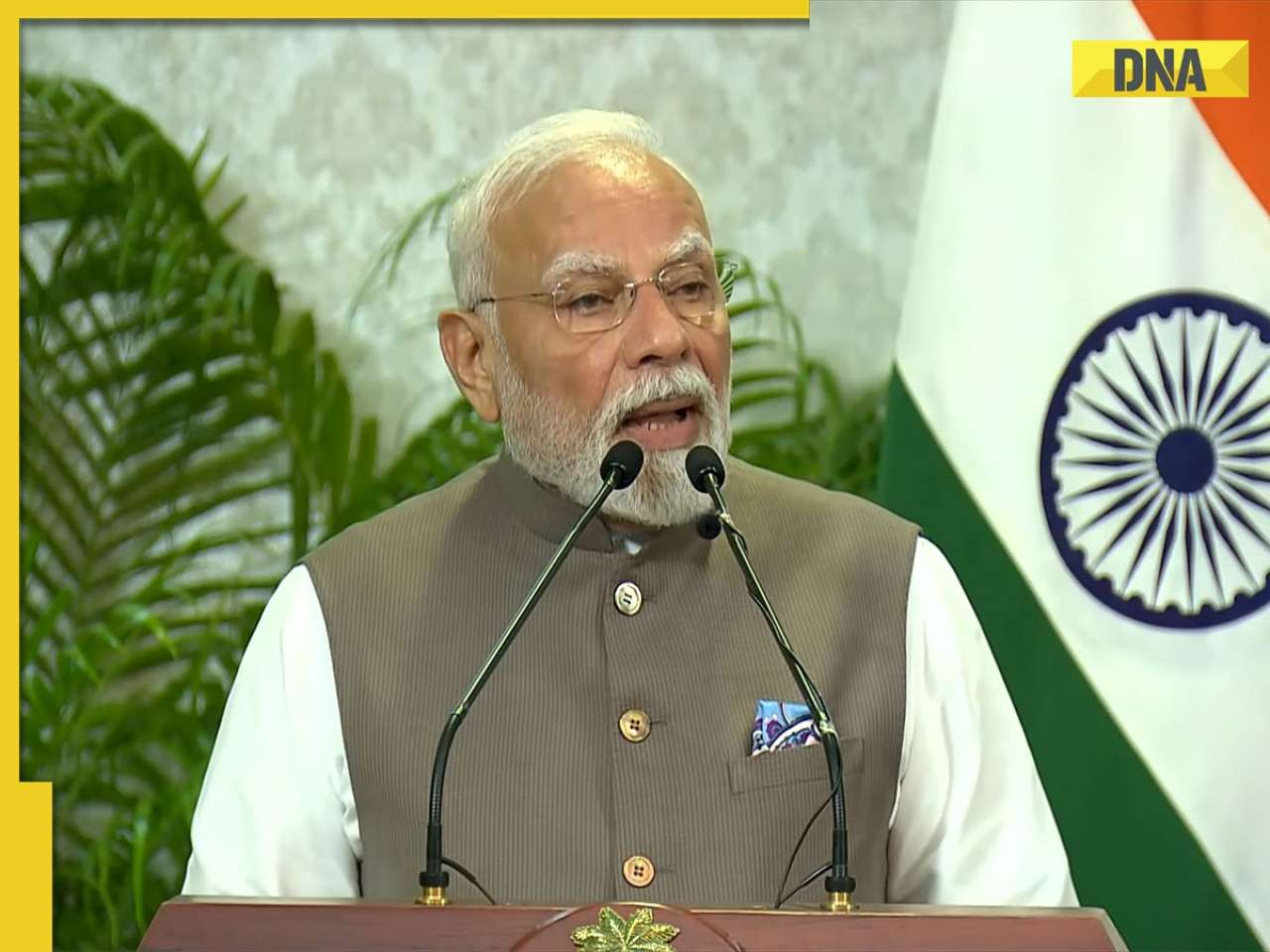 PM Modi's BIG message to Maldives, says, 'Whether it's a disaster or...'
PM Modi's BIG message to Maldives, says, 'Whether it's a disaster or...' Good news for first-time employees, set to get Rs…; check eligibility and other details
Good news for first-time employees, set to get Rs…; check eligibility and other details Air India sees another mid-air scare as Mumbai-bound flight returns to Jaipur minutes after takeoff due to...
Air India sees another mid-air scare as Mumbai-bound flight returns to Jaipur minutes after takeoff due to...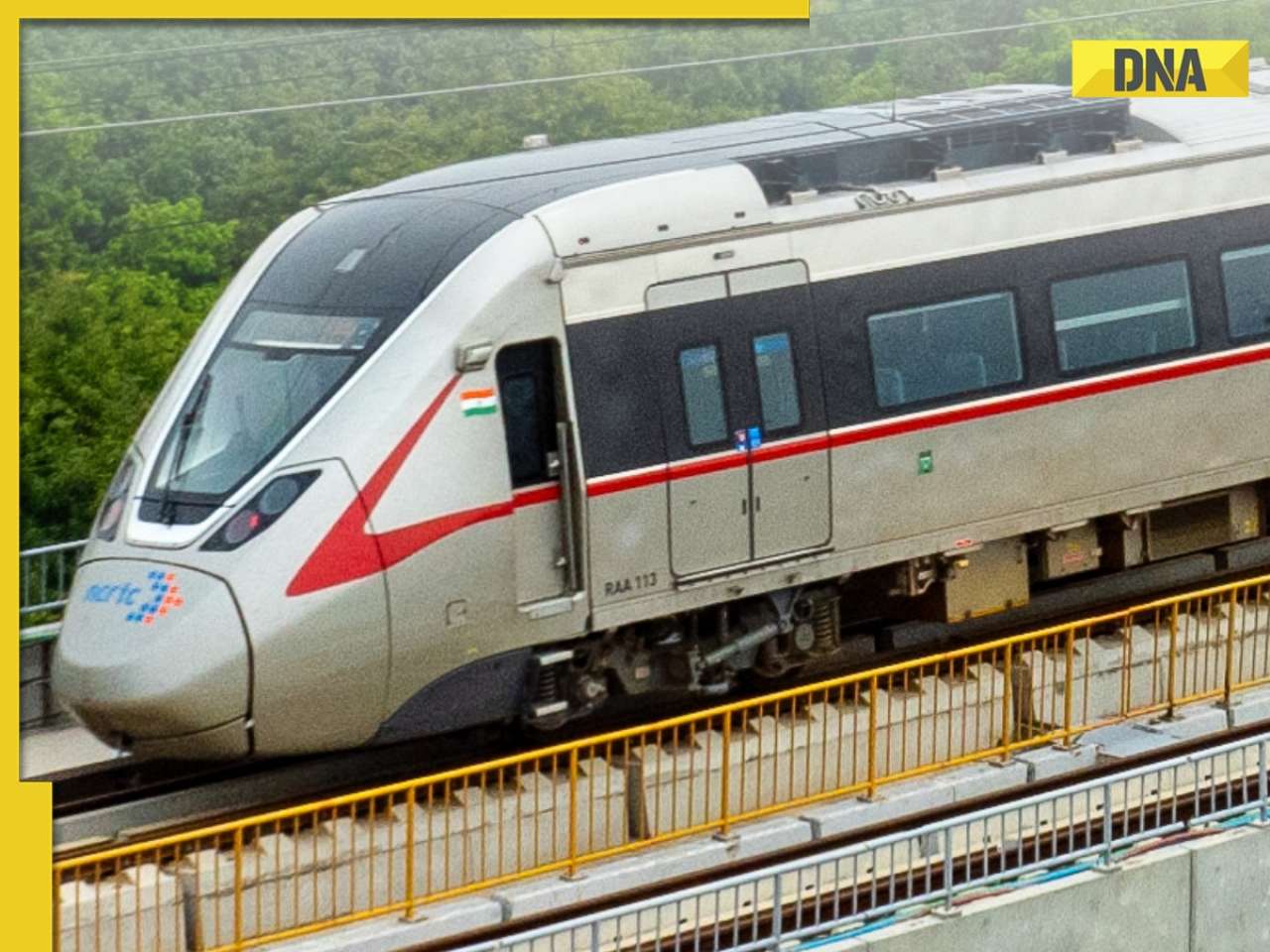 Delhi-Meerut RRTS: Namo Bharat train timings changed for July 27 due to...; to start at...
Delhi-Meerut RRTS: Namo Bharat train timings changed for July 27 due to...; to start at... Meet Nilufa Yasmine, who topped UGC NET June exam, failed twice before scoring a perfect 100, she is from...
Meet Nilufa Yasmine, who topped UGC NET June exam, failed twice before scoring a perfect 100, she is from... Meet woman, daughter of vegetable vendor who cracked UPSC, her mother mortgaged gold for her education, her AIR is…
Meet woman, daughter of vegetable vendor who cracked UPSC, her mother mortgaged gold for her education, her AIR is… Meet woman, who cracked IIT with full-time job, secured impressive AIR of...; now works at Bill Gates' Microsoft as...
Meet woman, who cracked IIT with full-time job, secured impressive AIR of...; now works at Bill Gates' Microsoft as... Meet woman, couldn't speak English, once worked at Ratan Tata's TCS, cleared ISRO, BARC exams; later cracked UPSC with AIR..., she is...
Meet woman, couldn't speak English, once worked at Ratan Tata's TCS, cleared ISRO, BARC exams; later cracked UPSC with AIR..., she is... Meet woman, 'beauty with brain', who left medical studies, cracked UPSC exam not once but twice with AIR..., she is from...
Meet woman, 'beauty with brain', who left medical studies, cracked UPSC exam not once but twice with AIR..., she is from... Maruti Suzuki's e Vitara set to debut electric market at Rs..., with range of over 500 km, to launch on...
Maruti Suzuki's e Vitara set to debut electric market at Rs..., with range of over 500 km, to launch on... This is world’s most expensive wood, cost of 1kg wood is more than gold, its name is..., is found in...
This is world’s most expensive wood, cost of 1kg wood is more than gold, its name is..., is found in... This luxury car is first choice of Indians, even left BMW, Jaguar, Audi behind in sales, it is...
This luxury car is first choice of Indians, even left BMW, Jaguar, Audi behind in sales, it is... Kia India unveils Carens Clavis: Check features, design changes, price and more; bookings open on...
Kia India unveils Carens Clavis: Check features, design changes, price and more; bookings open on... Tesla CEO Elon Musk launches most affordable Cybertruck, but it costs Rs 830000 more than older version, it is worth Rs...
Tesla CEO Elon Musk launches most affordable Cybertruck, but it costs Rs 830000 more than older version, it is worth Rs...




)
)
)
)
)
)
)
)
)
)
)
)
)
)
)
)
